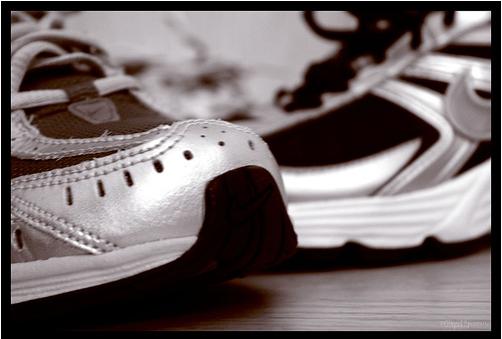
I saw this article on Yahoo about how to choose the right pair of shoes for your sport and it reminded me of all the different running shoes I have had over the years. I can’t remember what years I had what shoes, but I have had almost every brand you can name: Nike, Adidas, Asics, New Balance, Brooks? In the beginning of the article it says that a pair of shoes will not make you better at any given sport, but it will prevent any unnecessary injuries that bad shoes will do to you. I have had quite a running few injuries in my day, including shin splints, as well as knee and hip injuries. But I never drew to the conclusion that one particular pair of shoes caused that particular injury. And that’s because I don’t think it’s true. I do believe that certain brands offer different features when it comes to running shoes. Some brands are more focused on weight so they lack a little in support and the other way around. Other shoes are made for specific types of feet shapes and sizes.
I remember back in Junior year when I got some really cheap racing flats. My feet would be burning so much that in a three mile race, my feet would be on fire by the first mile! I made the mistake of continuing to race in them, thinking, ‘oh it was a one time thing, it should be fine in the next race.’ It never was. And then one day one of my teammates offered an extra pair of flats that he had and they were also cheap too. But it felt so good running in those, it was the greatest feeling ever (in a race). He was nice enough to let me keep racing in them. The ironic thing was my other teammate raced in those same flats that burned my feet and he had no problems with it.
Every runner is different, and this story shows it. While one shoe may be terrible for one runner, it will be okay for another. This is why you test out shoes before you buy them, maybe run around in them if possible (some stores actually let you do that).
Choosing running shoes for sports is a difficult process. You want to find out what is important for each sport (support, comfort, stability, etc.) and then compare with other competitors to see how they do or do not meet those needs. It’s also a great way to find one that suits your price and personal preferences. For example, when I was younger I never tried to choose the right basketball shoe, but bought whatever was cheapest. That didn’t work out for me because I ended up getting injured and the shoes just wore out a lot sooner than expected.